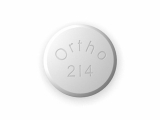How erectile dysfunction affects reproduction
Erectile dysfunction (ED) is a common sexual dysfunction that affects men of different ages. The inability to achieve and maintain erections is the hallmark of this condition, and it can have a significant impact on a man's quality of life. However, ED can also have implications for reproduction, and this is an important area of research that deserves attention.
ED can impact reproduction in several ways. For instance, it can affect semen quality and quantity, diminish libido, reduce the chances of fertilization, and increase the risk of miscarriages. These effects can be the result of various factors, such as hormonal imbalances, neurological conditions, psychological or emotional issues, or other health problems that are commonly associated with ED. Therefore, understanding the mechanisms by which ED affects reproduction and developing effective strategies to mitigate these effects is crucial for men who want to conceive or avoid negative outcomes in their sexual health.
Research has shown that ED is more prevalent in men who have existing fertility problems, such as low sperm count or motility. Moreover, ED can be a sign of underlying health issues that can affect fertility, such as diabetes, hypertension, or cardiovascular disease. Therefore, early diagnosis and treatment of ED can not only improve sexual function but also prevent or manage other health problems that may harm reproduction.
In this article, we will explore the impact of ED on reproduction, the underlying causes of this association, and the available treatments and strategies that can help men overcome ED and improve their chances of fertility.
Erectile Dysfunction Explained
What is Erectile Dysfunction?
Erectile Dysfunction (ED) is a condition that affects men of all ages, causing them to have difficulty achieving or maintaining an erection sufficient for sexual intercourse. It occurs when there is inadequate blood flow to the penis, or when there is a problem with the nerves that control erections.
What Causes Erectile Dysfunction?
Erectile Dysfunction can be caused by a variety of factors, both physical and psychological. Physical causes include underlying health conditions such as diabetes, heart disease, or high blood pressure. Psychological causes can include stress, anxiety, or depression.
How is Erectile Dysfunction Treated?
There are several treatment options available for Erectile Dysfunction, including medication, lifestyle changes, and therapy. Medications such as Viagra or Cialis can help increase blood flow to the penis, while lifestyle changes such as quitting smoking or losing weight can improve overall health and potentially alleviate symptoms. Therapy can also be beneficial in addressing any underlying psychological issues contributing to ED.
| Pros | Cons |
|---|---|
|
|
If you are experiencing symptoms of Erectile Dysfunction, it is important to speak with your healthcare provider to determine the underlying cause and potential treatment options.
Effects of Erectile Dysfunction on Male Fertility
Introduction
Erectile dysfunction (ED) is a common condition that affects a significant number of men, especially those aged 40 years and above. ED is typically associated with problems having and maintaining an erection during sexual activity. However, recent studies suggest that ED may also have implications for male fertility.
The Link between Erectile Dysfunction and Male Fertility
The occurrence of ED appears to be correlated with the quality and quantity of sperm in semen. Studies show that men with ED may have decreased sperm count, poor sperm motility, and abnormal sperm morphology. This means that they may experience difficulties in fertilizing an egg, leading to infertility.
Causes of Erectile Dysfunction and Their Effects on Male Fertility
ED can result from various factors, including psychological, physical, and lifestyle-related factors. Psychological factors such as stress, anxiety, and depression can impact sexual performance, reducing fertility. Physical causes, such as hormonal imbalances, diabetes, high blood pressure, and cardiovascular disease, can also reduce fertility. Lifestyle factors such as smoking, excessive drinking, and drug use can also negatively impact fertility.
Treatment Options for Erectile Dysfunction and Their Impact on Male Fertility
Several treatment options are available for men with ED, including oral medications, injections, penile implants, and psychological counseling. Treatment can improve sexual function but may have mixed effects on male fertility. For example, medications used to treat ED may improve sperm motility, while certain hormonal therapies used to treat ED may reduce sperm counts.
Conclusion
ED has implications for male fertility, and it is, therefore, essential to manage the condition adequately. Men with ED should seek appropriate medical attention to improve sexual performance and reduce the risk of infertility. Additionally, maintaining a healthy lifestyle, managing stress, and seeking psychological support can significantly improve fertility outcomes.
Effects of Erectile Dysfunction on Female Fertility
Decreased Chance of Pregnancy
When a man experiences erectile dysfunction, it can significantly reduce the chances of pregnancy for his partner. If a man is unable to achieve or maintain an erection, it makes sexual intercourse difficult or impossible. Without penetration, there is no chance for sperm to fertilize an egg. As a result, female fertility is negatively impacted.
Lower Quality of Sperm
Research has shown that erectile dysfunction can lead to a decrease in the quality of sperm. Men with this condition may have lower levels of testosterone, which can impact the number and motility of sperm. Poor sperm quality can make it more difficult for fertilization to occur.
Couples Struggling with Infertility
Couples who are already struggling with infertility may find that erectile dysfunction further complicates the issue. This can create extra stress and frustration within the relationship. It is important for couples experiencing fertility issues to seek medical help and support to ensure they receive proper treatment.
Emotional Strain
Erectile dysfunction can also take a toll on emotional well-being, which can further impact female fertility. For example, a man may feel embarrassed or ashamed of his condition, leading to decreased sexual desire and intimacy. This can create a cycle of negative emotions and further decrease the chances of successful conception. It is important for couples to communicate openly and seek professional help to navigate the emotional effects of this condition.
Treatment Options for Erectile Dysfunction
1. Medications
One of the most commonly used and effective treatment options for erectile dysfunction are medications, such as phosphodiesterase type 5 (PDE5) inhibitors. These medications work by increasing blood flow to the penis, which allows for an erection. Common PDE5 inhibitors include sildenafil (Viagra), tadalafil (Cialis), and vardenafil (Levitra).
2. Vacuum Devices
A vacuum erection device (VED) is a noninvasive treatment option that involves placing a plastic cylinder over the penis, creating a vacuum that draws blood into the penis and causes an erection. A constriction ring is then placed around the base of the penis to maintain the erection. While effective, the use of VEDs can be time-consuming and cumbersome.
3. Penile Injections
Penile injections involve injecting medication directly into the penis to increase blood flow and promote an erection. Common medications used for penile injections include alprostadil, papaverine, and phentolamine. While effective, penile injections can be painful and carry a risk of priapism (prolonged erection).
4. Surgical Options
Surgical options for erectile dysfunction are typically reserved for men who have not responded to other treatment options. These options may include penile implants, which involve surgically inserting a device into the penis that enables the patient to achieve an erection, or vascular surgery, which involves repairing damaged blood vessels in the penis.
5. Lifestyle Changes
In some cases, making lifestyle changes can help improve erectile dysfunction. This may include exercising regularly, maintaining a healthy weight, managing chronic health conditions such as diabetes or high blood pressure, quitting smoking, and reducing alcohol consumption.
6. Counseling
For some men, erectile dysfunction may have psychological causes such as anxiety, depression, or relationship issues. Counseling or therapy can be effective in addressing these underlying psychological issues and improving erectile dysfunction.
Conclusion
Overall, there are a variety of treatment options available for erectile dysfunction, ranging from medications to surgery to lifestyle changes. It's important for men to talk to their healthcare provider about their symptoms and treatment options to find the best approach for their individual needs.
Prevention of Erectile Dysfunction and its Impact on Reproduction
Lifestyle changes
Erectile dysfunction (ED) can be prevented or reduced by making certain lifestyle changes. One of the most effective measures is to maintain a healthy weight, which reduces the risk of obesity and related conditions such as diabetes and heart disease. Regular exercise, a balanced diet, and reducing stress levels also help improve sexual function and overall health. Avoiding smoking, excessive alcohol or drug intake, and maintaining good sleep hygiene are other measures that help prevent ED.
Medical interventions
Medical interventions can help prevent ED and improve reproductive health. Regular health screenings for conditions such as hypertension, diabetes, and heart disease can help detect and treat underlying medical conditions that may cause ED. Medications such as phosphodiesterase type 5 inhibitors (PDE5 inhibitors) are effective in treating ED and improving reproductive health. Testosterone replacement therapy is also used to treat ED caused by low levels of testosterone.
Psychological interventions
Psychological factors such as anxiety, depression, and stress can cause or contribute to ED. Seeking psychological counseling or therapy can help identify and treat these underlying issues, and improve sexual function. Couple's therapy or sexual counseling can also improve sexual satisfaction, communication, and intimacy, which can reduce ED and improve reproductive health.
In conclusion, preventing or reducing the impact of ED on reproduction is possible through lifestyle changes, medical interventions, and psychological interventions. Maintaining a healthy lifestyle, seeking medical care when needed, and addressing psychological factors are key to preventing and improving ED and reproductive health.
Follow us on Twitter @Pharmaceuticals #Pharmacy
Subscribe on YouTube @PharmaceuticalsYouTube





Be the first to comment on "How erectile dysfunction affects reproduction"